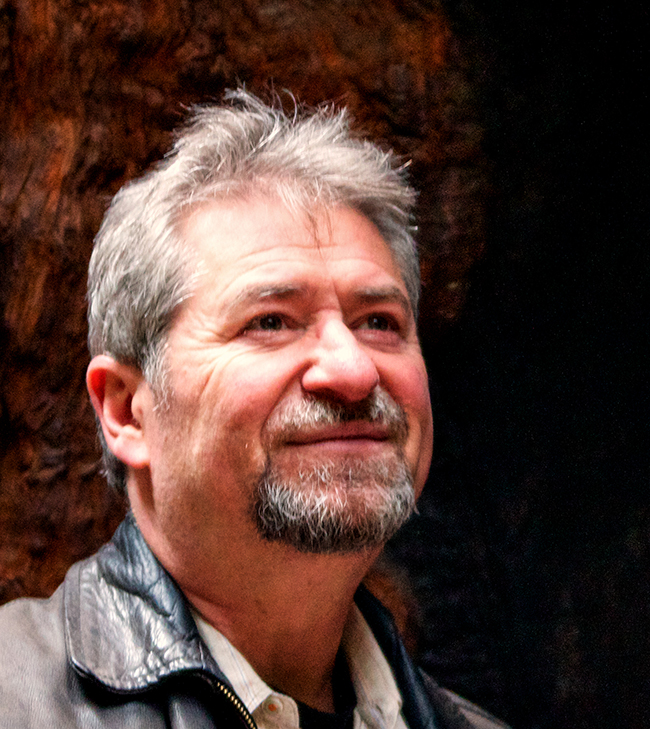by Alan Briskin | Books, Fields

For the first time in quite a while, I am moved to consider a book project, something I do with a fair amount of trepidation. When an idea is powerful enough to take me over, I find it can be all consuming and I never really know where it will take me. I find it exciting but also disorienting, never knowing what leads to treasure and what to swamp land. Joining me in this writing venture directly is my colleague, Mary Gelinas, as well as colleagues mentioned at the end of this post who have actively pursued with me the creation of generative fields. Without them, I would surely be lost.
What follows is the opening declaration for this project and an initial introduction to social fields.
REVELATION
A REVOLUTIONARY FRAMEWORK
FOR AWE, EQUANIMITY, AND SOCIAL CHANGE
Revelation
1) An act of uncovering something that has been hidden from view.
2) Communicating from a sacred or universal source
We believe there exist fields, often expressed through suggestive metaphors, that influence individual, group and organizational effectiveness – from the most harmonious of social dynamics to its mirror opposite, corrupted and violent interactions.
We believe becoming conscious of these fields, in all their variety, and learning to navigate them can result in positive social transformation, including greater equity, justice, and sustainable living. Fields contain different kinds of energy and have unique histories that impose form and organization onto social interactions. Learning to create generative fields and disrupt dysfunctional ones will be the pioneering work of the next decades and current century.
We believe it is our evolutionary responsibility, individually and collectively, to shape what happens within these fields. Fields can be altered and by doing so create new possibilities for the future.
One of the primary way fields are re-made is through human consciousness. Only in the past forty years have we learned that the individual brain continues to develop through its entire life span, capable of neuroplasticity, the re-wiring of neural pathways necessary for learning and new behavior. By working at the edges of scientific discoveries of the brain and organizational insights about the nature of social change, we can become pioneers of new social forms, highlighting our capacity to adapt and grow without discounting the biological and historical obstacles all forms of social change encounter.
Read More
by Alan Briskin | Books
 Last week at Berrett Koehler‘s author day for Parker Palmer, I had the pleasure of meeting Janet Perry. She is the founder of Nonfiction4life , a website dedicated to providing audiences with quality books and 30 minute author podcasts.
Last week at Berrett Koehler‘s author day for Parker Palmer, I had the pleasure of meeting Janet Perry. She is the founder of Nonfiction4life , a website dedicated to providing audiences with quality books and 30 minute author podcasts.
Meeting Janet was delightful, her passion for books obvious, and we quickly agreed to do a podcast.
Rare among interviews I’ve had, she read the book in detail and inquired about specific stories such as the fire at Mann Gulch, the Challenger explosion, and Ben Franklin’s role in the formation of the U.S. Constitution – relevant as ever during this time of government shutdown.
Listen to the podcast on their blog and please comment if you like it!
by Alan Briskin | Books, Business
My publisher, Berrett-Koehler, is featuring my book, Bringing Your Soul to Work, as a free e-book over the next 48 hours. They also offering 40% discount and free shipping on all their publications, including my other books, The Power of Collective Wisdom and The Stirring of Soul in the Workplace. Great as gifts for friends. Get your free e-copy now.
by Alan Briskin | Books, Collective Wisdom, Creativity, Nature, Photography, Quotable
 "One of the essential qualities of collective wisdom is a palpable sense of connection with each other and to larger forces that is found, for example, in nature, in relationship to our ancestors, and even in relation to a physical place….
"One of the essential qualities of collective wisdom is a palpable sense of connection with each other and to larger forces that is found, for example, in nature, in relationship to our ancestors, and even in relation to a physical place….
People who talk about their experiences of collective wisdom often report a sense of openness and awareness of something larger than themselves. The ability to communicate seems broader, and people are often astounded by the creativity that comes forward.
“You have a sense,” Frenier observed, “that the whole group is creating together, and you don’t quite exactly know how.”
~ The Power of Collective Wisdom: And the Trap of Collective Folly
by Alan Briskin | Books, Collective Wisdom, Poetry
This poem was created out of fragments of speech over a three day period, drawing from individual conversations and group discussions I had or witnessed at the annual Berrett-Koehler Publishers Author
Co-op retreat. The language used was specific to the situation but I have been encouraged by others who were not there that it may have a significance beyond its original setting. I hope it tickles your fancy:
Collective Poem
We’re running short on time
but don’t knock yourself out:
We want to reach as many
People as possible
Skyrocket sales
Create a twenty-year book
from a launch party
that lets 1,000 flowers bloom.
Walking 2.5 miles of an
interpretive nature trail
I wonder how to interpret
my life.
Am I wayfarer or tourist?
I keep hearing that there is
so much to cover,
But did I not also hear
that the trail is a circle.
And in a circle, we will
come to the same place –
again and again.
Kabir said as much
But I felt the invitation
and the challenge.
When my time ends, will the
world cry or rejoice?
Two streams parallel the trail I’m on.
One flows from the past with all
its inconsistencies and shadow. The
other runs into the distance obscured
by the brush.
Are there not also two parallel lives
we live, the one on the inside and
the one we show to the world?
I know I need to tweet and blog
and have a services page,
but I have been instructed by
higher counselors to consider what
I need to receive, to ponder
what of value I resist.
There are those who bound over
rails, unencumbered by the
group… but we’re running short
of time and it is by holding
hands and moving accordion-like
that we will reach the
farther shore.
I was asked if
I was coming or going
and said Yes!
~ Alan Briskin, 2010
by Alan Briskin | Books, Collective Folly, Conflict, Politics

In the late 70’s, I learned about the research of Nevitt Sanford. He was my professor and founder of the graduate school I attended. He was also one of the authors of a landmark research project begun shortly after World War II that resulted in the publication of The Authoritarian Personality . Catalyzed by the Jewish holocaust in Germany, they set out to discover if there was some pattern of human personality that allowed for the receptivity to prejudice that could lead to de-humanization and ultimately mass violence. He was one of the most gentle, thoughtful, and kind academic leaders I have ever known.
. Catalyzed by the Jewish holocaust in Germany, they set out to discover if there was some pattern of human personality that allowed for the receptivity to prejudice that could lead to de-humanization and ultimately mass violence. He was one of the most gentle, thoughtful, and kind academic leaders I have ever known.
The research, however, was quite controversial.
Illuminating at best, and suspicious science at worst (they used questionnaires to test for fascist tendencies and were heavily influenced by psychoanalytic language and Marxist concepts), the research nevertheless opened up my eyes to patterns of behavior that solved some perplexing questions I held. How could a person be simultaneously conventional in their social attitudes yet extreme in their viewpoints? Similarly, how could someone be both violently against what they perceived as control over themselves, yet seemingly willing to join others in denigrating and having power over others not in their perceived group? I was particularly struck by their description of what they called surface resentment. “We refer here,” they wrote more than sixty years ago “to people who accept stereotypes of prejudice from outside, as ready made formulae…in order to rationalize and – psychologically or actually – overcome overt difficulties of their own existence.”
Surface resentment is not the same as authoritarianism but it is a close enough cousin to be fanned by group passions. Weisberg in his column on the tea party writes that “nostalgia, resentment, and reality denial are all expressions of the same underlying anxiety about losing one’s place in the country, or of losing control of it to someone else.” In other words, a popular movement fanned by fears of economic, social, or status dislocation acts as a magnet on all surface resentments, especially for those who have felt ignored or pushed aside by multi culturalism, global movements in industry, and elites of various kinds who seem smug, arrogant, and disconnected from the difficulties of their own existence. This is why even if active tea party supporters are largely made up of older married white men of European ancestry with a Christian background; there is plenty of room for others who harbor resentment. The feelings are at once frustration that no one is listening to them and anger that there is far too much sympathy for gays, Muslims, blacks, Hispanics, and other out groups, far from the mainstream – or more insidiously replacing them as the mainstream.
Patrick Buchannan, the Republican candidate for President in 1992 and 1996 referred to this as “culture wars” and explicitly linked sympathy for these out groups with the nation’s decline. This week, the number one book on Amazon is The Roots of Obama’s Rage by Dinesh D’Souza, charging that Obama is driven by an anti-colonial ideology inherited from his African father and who seeks to diminish America’s strength, influence, and standard of living. And in a sad competitive clash of stereotypes among out groups exposed to discrimination, the CNN anchor Rick Sanchez was fired on Oct. 1 for disparaging the Jewish comedian Jon Stewart as a bigot. He argued that Stewart, like many middle class Jews and CNN staff, never faced real prejudices as he did having been born in Cuba and growing up in Florida – “I grew up not speaking English, dealing with real prejudice every day as a kid; watching my dad work in a factory, wash dishes, drive a truck, get spit on.” For Sanchez, the surface resentment against people not like himself burst forward as he denigrated Stewart for among other things, surrounding himself only with people like himself. We see in others the negative qualities that are so difficult to see in ourselves. And the ghosts of our original colonial identity as subject to power and the history of our maturing into a power that dictated to others is now coming back to haunt us in a myriad of twists and turns.
by Dinesh D’Souza, charging that Obama is driven by an anti-colonial ideology inherited from his African father and who seeks to diminish America’s strength, influence, and standard of living. And in a sad competitive clash of stereotypes among out groups exposed to discrimination, the CNN anchor Rick Sanchez was fired on Oct. 1 for disparaging the Jewish comedian Jon Stewart as a bigot. He argued that Stewart, like many middle class Jews and CNN staff, never faced real prejudices as he did having been born in Cuba and growing up in Florida – “I grew up not speaking English, dealing with real prejudice every day as a kid; watching my dad work in a factory, wash dishes, drive a truck, get spit on.” For Sanchez, the surface resentment against people not like himself burst forward as he denigrated Stewart for among other things, surrounding himself only with people like himself. We see in others the negative qualities that are so difficult to see in ourselves. And the ghosts of our original colonial identity as subject to power and the history of our maturing into a power that dictated to others is now coming back to haunt us in a myriad of twists and turns.
And it is not just the men. One female supporter of the tea party blogged that women are a critical part of the movement. “These are fierce women. These are women who have passels of grandchildren, who are heads of their families, respected decision-makers and rulers of their roosts… I think back to the report… on the Glen Beck event and the army of moms with huge garbage bags directing the hundreds of thousands to pick up after themselves. This is how we feel about America right now. We’re done waiting for you to clean up your trash. Momma sees a mess and darn it, you’re going to clean it up and you’re going to do it RIGHT NOW while we supervise. Now get over here and put that trash in this bag!” The metaphor is all about being in charge again, rulers of the roost, and about others who don’t pick up after themselves. Damn it, get in line.
I want to confess that on a personal level, I understand these various reactions to discomfort. When events seem out of control, I want to feel in control and it is at these times I am most inclined to react from surface resentments and project negative motives, even stereotypes, onto others – especially on those who differ with me.
At a group level, however, these dynamics describe elements of what my coauthors and I came to call collective folly. Collective folly is made up of two sides of the same coin. On one side is the movement toward separation and fragmentation. Group members resist ideas, other group members, or other groups that are deemed “not me” or “not us.” There is a tendency toward confirmation bias and the ignoring of divergent perspectives or data. At its extreme, destructive polarization is the outcome.
On the other side of the coin is the movement toward false agreement and the façade of unity. Group members appear to be unified, at least in what they are opposed to. The consequence is conformity within the group even if the ideology of the group supports individual rights, libertarian ideas, progressive politics and other ideologies seemingly contradictory to conformity. This movement masks a separation that already exists, among its members as well as outside itself, and consequently prevents the group from considering data and perspectives that could help it develop a more complete understanding of the reality it faces. At its extreme, unanticipated catastrophe can result.
What both sides of the coin have in common is a discomfort with complexity, paradox, ambiguity, and uncertainty. Both movements of collective folly ignore or explicitly distance themselves from divergent views and perspectives. The question is how do we confront these two movements of collective folly without being drawn into the very dynamics they describe.
Read the concluding essay in this five part series: What Can Be Done.





